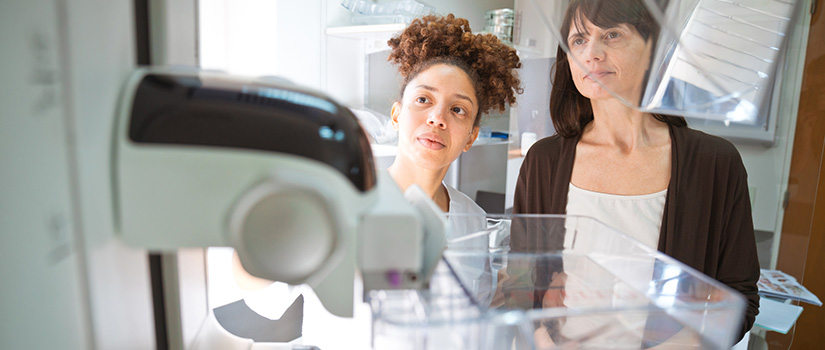National Mammography Day serves as a reminder and encouragement for women to get screened for breast cancer through mammograms. Currently, a mammogram is the best way to find breast cancer for most women. When detected early, the 5-year relative survival rate for breast cancer is 99%.
Why it matters
Breast cancer is most prevalent among women. In addition, it is the second most common cause of death from cancer among women in South Carolina. Black women have a lower 5-year survival rate at all stages than white women.
- According to the American Cancer Society, 82 % of Black women live at least 5 years after their initial breast cancer diagnosis compared to 92% of white women.
- In 2018, the Centers for Disease Control and Prevention (CDC) reported that 70.9% of SC women 40 years and older had a mammogram in the past 2 years (U.S. average, 71.8%).
- In SC, Black women 40-64 years reported higher use of mammogram screening in the past two years than white women (81.4% and 77.1%, respectively)
The National Cancer Institute states that breast density can make a mammogram more difficult to interpret and more likely to miss cancer, therefore is a risk factor for breast cancer. Dense tissue can hide cancers because it’s hard to tell the difference between a tumor and white areas in the mammogram. As of September 10, 2024, all mammogram reports sent to patients in the U.S. will be required to include breast density. South Carolina was the 27th state to have some form of reporting legislation in 2016.
What they’re saying
Dr. Pinto, Associate Dean for Research and Co-Director of the Cancer Survivorship Research Center says, “Women who have dense breast issue should not completely rely on mammograms and advocate to have additional screening done such as a 3D mammogram, a breast ultrasound or MRI.”
“The relationship between breast density and breast cancer can be complicated,” says Dr. Karen Wickersham, assistant professor and SC Cancer Alliance Board member. “The best advice is to speak with a health care provider to learn what is best for an individual, based on their own medical and family histories.”
